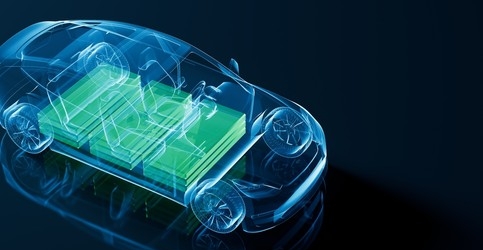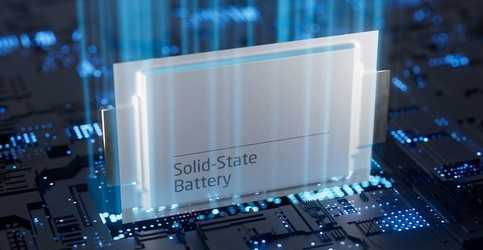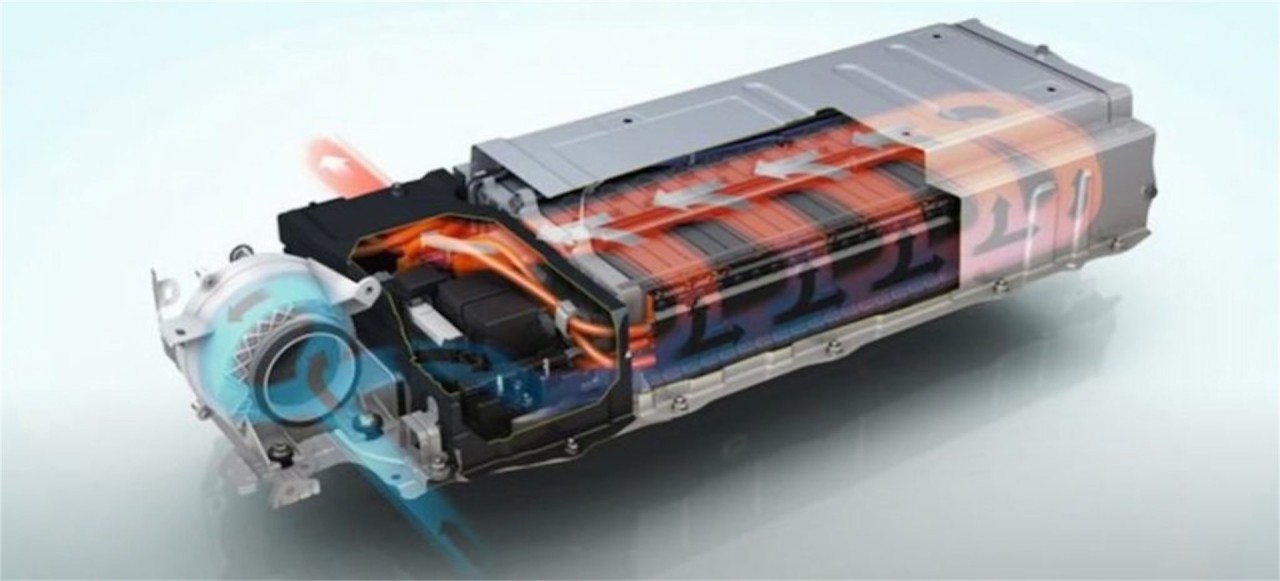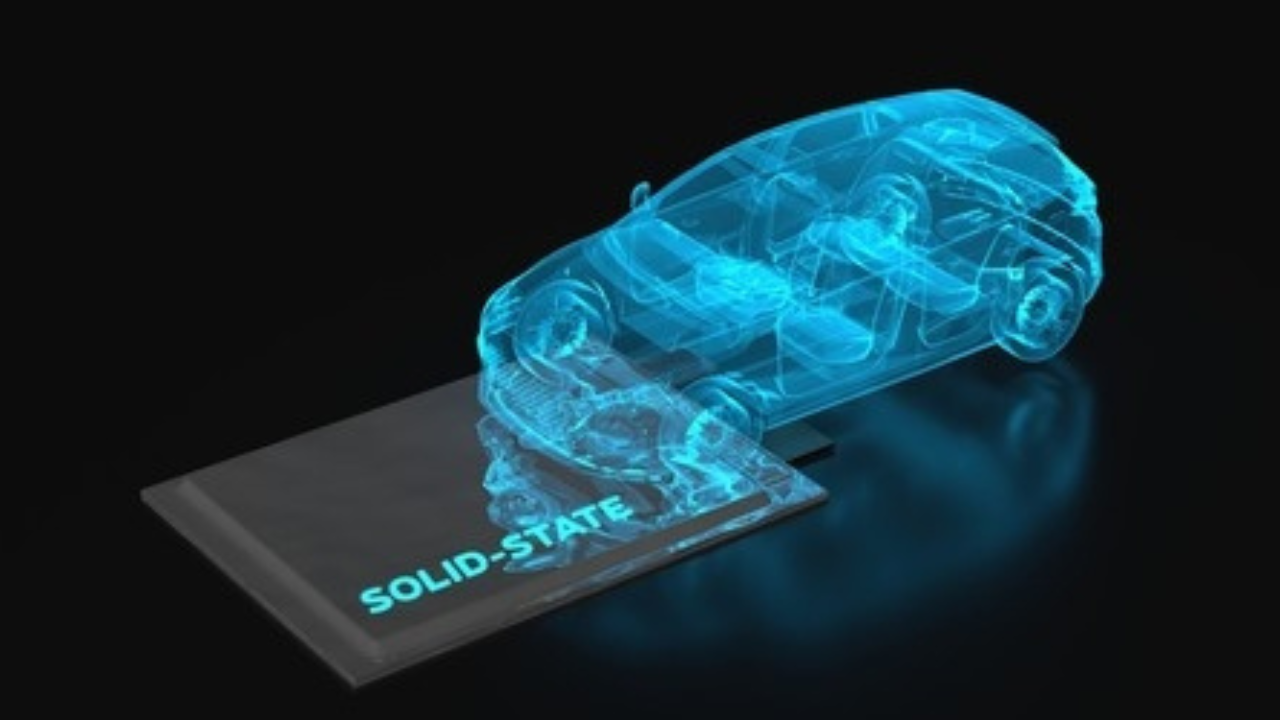Toyota Solid State Battery is a next-generation battery technology that offers higher energy density and faster charging times. It is a revolutionary advancement in the automotive industry.
With the increasing demand for electric vehicles (EVs), developing more efficient and durable batteries has become crucial. Toyota’s solid-state battery aims to address these challenges by using a solid-state electrolyte instead of the traditional liquid electrolyte.
This not only improves the battery’s safety and lifespan but also offers significant improvements in terms of energy storage and charging capabilities.
We will explore the key features and benefits of Toyota’s solid-state battery and its potential impact on the future of electric vehicles. We will also discuss the current challenges and timeline for the commercialization of this groundbreaking technology. So, let’s dive in and discover the future of automotive batteries with Toyota’s solid-state technology.
History Of Battery Technology
The history of battery technology is a fascinating journey that has paved the way for numerous advancements in mobile and electric devices. From primitive voltaic piles to cutting-edge solid-state batteries, each development has brought us closer to achieving efficient and sustainable energy storage solutions.
Development Of Lithium-ion Batteries
Lithium-ion batteries are a significant milestone in the progression of battery technology. These rechargeable powerhouses revolutionized the field by providing higher energy density and longer-lasting performance than their predecessors.
- Lithium-ion batteries were first developed in the 1970s by Stanley Whittingham, Rachid Yazami, and Akira Yoshino.
- They offered a viable alternative to the heavy and inefficient nickel-cadmium batteries.
- Lithium-ion batteries employ a carbon-based material as the negative electrode (anode) and a lithium-containing compound as the positive electrode (cathode).
- The electrolyte, a conductive solution, facilitates the movement of lithium ions between the anode and cathode during charging and discharging.
- This technology significantly enhanced the performance of portable devices, such as laptops, smartphones, and tablets, powering them for longer durations.
Drawbacks Of Lithium-ion Batteries
Although lithium-ion batteries have played a crucial role in various industries, they are not exempt from limitations and drawbacks. Some of their prominent disadvantages include:
- Limited energy density: Lithium-ion batteries have reached a plateau in energy density, hindering further advancements in portable device performance.
- Prone to overheating and safety concerns: The flammability of the electrolyte solution poses safety risks, as overheating or short-circuits can lead to thermal runaway.
- Environmental impact: The mining and disposal of lithium-ion batteries can adversely affect the environment and human health.
- Slow charging and battery degradation: Lithium-ion batteries tend to degrade over time, reducing their capacity and leading to slower charging as the number of charge cycles increases.
Researchers and engineers have been actively investigating alternative battery technologies, recognizing the need for further improvement. One notable contender that holds significant promise is the Toyota solid-state battery.

Introduction To Solid-State Batteries
Toyota’s innovation in solid-state batteries offers advanced energy storage solutions for electric vehicles. The technology promises higher energy density, improved safety, and faster charging capabilities, marking a significant step forward in automotive battery technology. This development represents a breakthrough in pursuing sustainable and efficient transportation solutions.
As technology advances, the world is shifting towards more sustainable energy sources. The automotive industry, in particular, is undergoing a significant transformation with the rise of electric vehicles (EVs). One crucial component of EVs is the battery, and one innovation generating a lot of buzz is the solid-state battery.
What Are Solid State Batteries?
Solid-state batteries are a groundbreaking technology that aims to revolutionize the energy storage industry. Unlike traditional lithium-ion batteries, solid-state batteries have a solid electrolyte instead of a liquid or gel electrolyte. This solid electrolyte serves as a conductor for ions, allowing it to store and release energy efficiently.
One of the critical advantages of solid-state batteries is their safety. With no flammable liquid electrolyte, the risk of thermal runaway or explosion, a concern with lithium-ion batteries, is significantly reduced. Solid-state batteries are a promising solution for EV manufacturers looking to enhance safety standards.
In addition to safety, solid-state batteries offer several other advantages over their liquid-based counterparts.
Advantages Over Traditional Lithium-ion Batteries
- Higher Energy Density: Solid-state batteries have the potential to achieve a higher energy density, meaning they can store more energy in the same physical size. This translates to longer driving ranges for electric vehicles, eliminating the range anxiety often associated with EVs.
- Faster Charging: Solid-state batteries could enable faster charging times than traditional lithium-ion batteries. With EV drivers being able to recharge their vehicles in mere minutes rather than hours, the convenience of electric cars could be significantly improved.
- Increased Lifespan: Solid-state batteries are expected to have a prolonged lifespan compared to lithium-ion batteries. This is due to the absence of the dendrites that often form in liquid-based batteries, leading to performance degradation over time. With a longer lifespan, solid-state batteries can provide more excellent value for EV owners.
- Wide Temperature Range: Unlike lithium-ion batteries, solid-state batteries are not significantly affected by temperature fluctuations. This means they can perform optimally in extreme weather conditions, making them ideal for electric vehicles operating in regions with hot summers or freezing winters.
It is important to note that while solid-state batteries hold tremendous promise, there are still challenges to overcome before they become widely commercialized.
Manufacturers work tirelessly to address fabrication costs, scalability, and cycle stability issues. However, with ongoing research and development, solid-state batteries may soon become the new standard in energy storage.

Toyota’s Breakthrough In Solid State Battery
Toyota’s breakthrough in solid-state battery technology has sparked a wave of excitement and anticipation within the automotive industry. The potential impact of this innovation on electric vehicles is tremendous, with the promise of more extended range, faster charging, and enhanced safety.
Collaboration And Research Initiatives
Strategic collaborations and extensive research initiatives have fueled Toyota’s success in developing solid-state batteries. The company has partnered with leading academic institutions and industry experts to accelerate the advancement of this game-changing technology.
Collaborative efforts have facilitated the pooling of resources and expertise, paving the way for breakthrough innovations in battery technology.
Key Features And Performance
- Enhanced Energy Density
- Faster Charging Times
- Improved Safety and Stability
The solid-state batteries developed by Toyota boast remarkable features and performance capabilities that set them apart from traditional lithium-ion batteries. With enhanced energy density, these batteries can store more energy in a compact space, paving the way for extended driving ranges without compromising vehicle weight or size.
Their faster charging times also promise to revolutionize the electric vehicle user experience, making recharging more convenient and efficient. Furthermore, these batteries’ improved safety and stability offer peace of mind to consumers and manufacturers alike, potentially eliminating concerns related to overheating and fire hazards.

Credit: www.linkedin.com
Impact On the Automotive Industry
The introduction of Toyota’s solid-state battery technology is set to revolutionize the automotive industry, delivering more extended range, faster charging times, and improved safety compared to traditional lithium-ion batteries. With its potential for transforming electric vehicles, Toyota’s solid-state battery is poised to impact transportation’s future significantly.
Potential For Electric Vehicles
One of the most notable impacts of Toyota’s solid-state battery technology on the automotive industry is its potential to revolutionize electric vehicles (EVs). The development of this advanced battery can potentially address many of the current limitations and challenges in EVs.
Range anxiety is a common concern among EV owners with conventional lithium-ion batteries. However, this concern could become virtually obsolete with solid-state batteries. Solid-state batteries offer significantly higher energy density, meaning they can store more energy in a smaller space. This translates to longer driving ranges for EVs, alleviating the fear of running out of power on a longer journey.
Moreover, solid-state batteries also have the potential to reduce the charging time for EVs. These batteries can be charged at higher rates, significantly faster than lithium-ion batteries. Imagine being able to recharge an EV to a substantial range in a matter of minutes, making long-distance travel as convenient as refueling a traditional gas-powered vehicle.
In addition to improved range and faster charging, solid-state batteries are also expected to enhance the overall safety of EVs. Unlike traditional batteries, solid-state batteries don’t contain flammable liquid electrolytes, reducing the risk of fire or explosion. This development could alleviate safety concerns and make EVs more appealing to consumers.
Challenges And Future Prospects
While the potential of Toyota’s solid-state battery technology is exciting, several challenges remain to overcome before it becomes commercially viable on a large scale.
One of the main challenges is the cost of production. Solid-state batteries have higher production costs than lithium-ion batteries, partly due to expensive materials. However, ongoing research and development are expected to reduce costs and make these batteries more economically feasible.
Another challenge lies in the scalability of production. The mass production of solid-state batteries is yet to be realized, and it will require significant investments in manufacturing infrastructure. Developing efficient production processes and building suitable facilities will bring these batteries to the market.
Despite these challenges, Toyota’s solid-state battery technology prospects are promising. As advancements continue and economies of scale are achieved, we expect improved efficiency, affordability, and widespread adoption of solid-state batteries in the automotive industry.
In conclusion, Toyota’s solid-state battery technology holds immense potential to impact the automotive industry, particularly in electric vehicles. Solid-state batteries could revolutionize the EV market by addressing range limitations, charging time, and safety concerns.
However, challenges related to cost and scalability need to be overcome for these batteries to become a mainstream reality. As we look to the future, the prospects for solid-state batteries in the automotive industry remain bright.
Conclusion And Future Implications
The development of Toyota Solid State Battery technology marks a significant milestone in advancing sustainable transportation. With its superior performance and safety features, this groundbreaking innovation has the potential to revolutionize the automotive industry.
As we conclude our discussion on solid-state batteries and their implications, let’s explore the future possibilities and the road ahead for this remarkable technology.
Implications For Sustainable Transportation
The Toyota Solid State Battery brings forth a plethora of implications for sustainable transportation. Below are some key points highlighting its positive impact on the environment and electric vehicle (EV) adoption:
- Extended Driving Range: These advanced batteries offer significantly increased energy density, enabling electric vehicles to travel longer distances on a single charge. This eliminates range anxiety and makes EVs comparable to conventional vehicles in terms of usability and convenience.
- Rapid Charging Capabilities: A notable advantage of solid-state batteries is their ability to charge much faster than traditional lithium-ion batteries. With improved charging infrastructure, EV owners can enjoy shorter charging times and greater convenience on the road.
- Enhanced Safety: Solid-state batteries mitigate safety concerns associated with conventional lithium-ion batteries, such as thermal runaway and fire risk. Their solid electrolyte design minimizes the likelihood of short circuits and explosions, thus offering users a safer and more reliable energy storage solution.
- Reduced Environmental Impact: The automotive industry can significantly reduce its carbon footprint by adopting solid-state batteries. These batteries are free from heavy metals and utilize more sustainable and environmentally friendly materials, making them a greener alternative to the current battery technology.
The Road Ahead For Solid-State Battery Technology
The promising breakthrough of the Toyota Solid State Battery technology opens up a broad spectrum of possibilities for the future. Here are some factors to consider as we move forward:
- Commercial Scaling: The next step involves scaling up the production of solid-state batteries to meet the increasing demand for electric vehicles. Extensive research and development efforts and collaborations between manufacturers are crucial in bringing this technology to market at an affordable price point.
- Performance Optimization: Solid-state batteries offer remarkable advantages, but there is room for improvement. Further research is needed to enhance the battery’s energy density, longevity, and temperature resilience to ensure optimal performance under various conditions.
- Integration and Compatibility: As solid-state batteries become more prevalent, automakers must adapt their designs to accommodate this new technology. Ensuring seamless integration between the battery, vehicle systems, and charging infrastructure will be essential for maximizing its potential.
- Collaborative Innovation: The future of solid-state battery technology depends on collaborative efforts among industry players, research institutions, and governments. By sharing knowledge, resources, and expertise, stakeholders can accelerate innovation, deepen the understanding of this technology, and drive its widespread adoption.
In conclusion, the Toyota Solid State Battery represents a game-changing development in sustainable transportation. With its myriad benefits and promising future implications, this technology has the potential to reshape the automotive industry and pave the way for a cleaner and greener future.
Toyota solid-state battery Tesla
No official collaboration between Toyota and Tesla on solid-state batteries existed. Both companies have been independently researching and developing electric vehicle (EV) technologies, including advancements in battery technology.
Toyota has pioneered hybrid technology with its Prius model and actively researched solid-state battery technology. Solid-state batteries are a promising next-generation technology for electric vehicles due to their potential for higher energy density, longer life, and improved safety compared to traditional lithium-ion batteries.
On the other hand, Tesla has been a key player in the electric vehicle market, primarily utilizing lithium-ion battery technology. Tesla has been working on its battery technologies and has announced plans to develop a more affordable and higher-performing battery. Still, as of my last update, they have not confirmed the use of solid-state batteries in their vehicles.
Toyota solid-state battery lithium
Toyota has been actively researching and developing solid-state battery technology for electric vehicles. Solid-state batteries are an emerging technology that uses solid electrolytes instead of liquid or gel electrolytes found in traditional lithium-ion batteries. They offer several potential advantages, including higher energy density, longer life, and improved safety.
Toyota has expressed its commitment to advancing solid-state battery technology and has set ambitious goals for commercializing solid-state batteries in its electric vehicles. The company aims to bring solid-state batteries to market in the early 2020s, but specific timelines and details may vary.
It’s worth noting that developments in battery technology are dynamic, and advancements or changes may have occurred since my last update. I recommend checking Toyota’s latest sources or official announcements for the most current information regarding their solid-state battery research and implementation in their electric vehicles.
Toyota solid-state battery vs lithium-ion
Toyota’s solid-state battery technology is considered a potential successor to traditional lithium-ion batteries, offering some key differences and advantages. Here’s a brief comparison between Toyota’s solid-state batteries and conventional lithium-ion batteries:
- Energy Density:
- Solid-state batteries are expected to have higher energy density than traditional lithium-ion batteries. This means they can store more energy in the same or smaller physical space, potentially providing longer driving ranges for electric vehicles.
- Safety:
- Solid-state batteries are generally considered safer than lithium-ion batteries. Traditional lithium-ion batteries use liquid electrolytes; in the event of damage or overheating, they may pose safety risks. On the other hand, solid-state batteries use solid electrolytes, which can enhance safety by reducing the risk of thermal runaway and fire.
- Life Cycle:
- Solid-state batteries are expected to have longer lifecycles compared to lithium-ion batteries. This means they can endure more charge and discharge cycles before experiencing a significant reduction in performance, contributing to a longer overall battery lifespan.
- Charging Speed:
- Solid-state batteries may offer faster charging capabilities compared to lithium-ion batteries. The solid electrolyte can enable faster ion movement, leading to quicker charging times for electric vehicles.
- Temperature Sensitivity:
- Solid-state batteries are often less sensitive to temperature variations compared to lithium-ion batteries. This could result in more stable performance in extreme temperatures, crucial for electric vehicles operating in diverse climates.
- Material Composition:
- Solid-state batteries typically use different materials, including solid electrolytes, which can contribute to their unique properties. The specific materials used can impact cost, scalability, and environmental sustainability.
It’s important to note that while solid-state batteries hold great promise, there are still challenges in manufacturing scalability, cost reduction, and large-scale commercialization.
Toyota has been actively working on solid-state battery technology, with plans to introduce it in their electric vehicles in the early 2020s. However, developments in battery technology are ongoing, and it’s recommended to check for the latest updates from Toyota and other research entities in the field.
Frequently Asked Questions On Toyota Solid State Battery
What Is A Solid State Battery?
A solid-state battery uses solid electrolytes instead of liquid or gel electrolytes, making it safer, more efficient, and longer lasting. It can potentially revolutionize the battery industry and improve the performance of electric vehicles and other portable electronics.
How Does A Solid State Battery Work?
In a solid-state battery, ions are transported through a solid electrolyte instead of a liquid or gel. This eliminates the risk of leaks and fires associated with traditional batteries. The solid electrolyte allows for faster ion transfer, improving the battery’s charging and discharging capabilities.
What Are The Advantages Of Solid State Batteries?
Solid-state batteries offer several advantages over traditional batteries, including improved safety, higher energy density, faster charging times, and longer cycle life. They also have the potential to be more environmentally friendly by reducing the reliance on fossil fuels in electric vehicles.
Are Solid State Batteries Available For Commercial Use?
While solid-state batteries show great promise, they are still in the research and development stage. Several companies, including Toyota, are working on commercializing solid-state batteries, but widespread availability is not expected for several more years.
Does Toyota have solid-state battery?
Toyota had been actively researching and developing solid-state battery technology. However, please note that developments in the automotive industry, especially regarding new technologies like batteries, can change rapidly. I recommend checking the latest sources or Toyota’s official announcements for the most up-to-date information on their solid-state battery progress.
What is the main problem with solid-state batteries?
One main problem with solid-state batteries is achieving cost-effective and scalable production. Manufacturing solid-state batteries with the required performance characteristics at a reasonable cost has been a significant hurdle, limiting their widespread adoption in various applications, including electric vehicles.
What is the lifespan of a Toyota solid-state battery?
Specific details about the lifespan of Toyota’s solid-state batteries were not readily available. The lifespan of any battery technology can depend on various factors, including usage patterns, temperature conditions, and technological advancements. For the latest and most accurate information on Toyota’s solid-state battery lifespan, I recommend checking Toyota’s official announcements or contacting the company directly for
What cars will use solid-state batteries?
Solid-state batteries were still in the early stages of development for automotive use, and no specific models were confirmed to use them. However, automakers, including Toyota, Volkswagen, and BMW, were investing in solid-state battery technology research. For the latest information on cars using solid-state batteries, please check the most recent sources or the latest updates from automotive manufacturers.
Does Toyota have new battery technology?
Toyota has been actively researching and investing in new technologies, including solid-state batteries. They have made advancements and announced plans to introduce electric vehicles (EVs) with solid-state batteries in the future. For the latest and most accurate information on Toyota’s battery technology developments, please check recent sources or updates from Toyota.
What company has a solid-state battery?
Several companies, including Toyota, QuantumScape, and Samsung, were actively working on solid-state battery technology. However, the landscape is dynamic, and developments may have occurred since then. It’s recommended to check the latest information from these companies or other sources for the current status of solid-state battery technology.
Conclusion
Innovative Toyota solid-state battery technology represents a game-changer in the automotive industry. With their potential to revolutionize electric vehicles, these batteries boast increased energy density and improved safety. The solid-state battery technology is poised to address the challenges of range anxiety and long charging times, paving the way for a greener and more sustainable future in transportation.

I am a technology Specialized writer and blogger based in the USA & UK. I have four years of experience in Technology, Social Media and all types of Battery’s like Solar Battery,Car Battery,Lithium Battery etc. So I work on solving these issues and give various tips on these issues.
